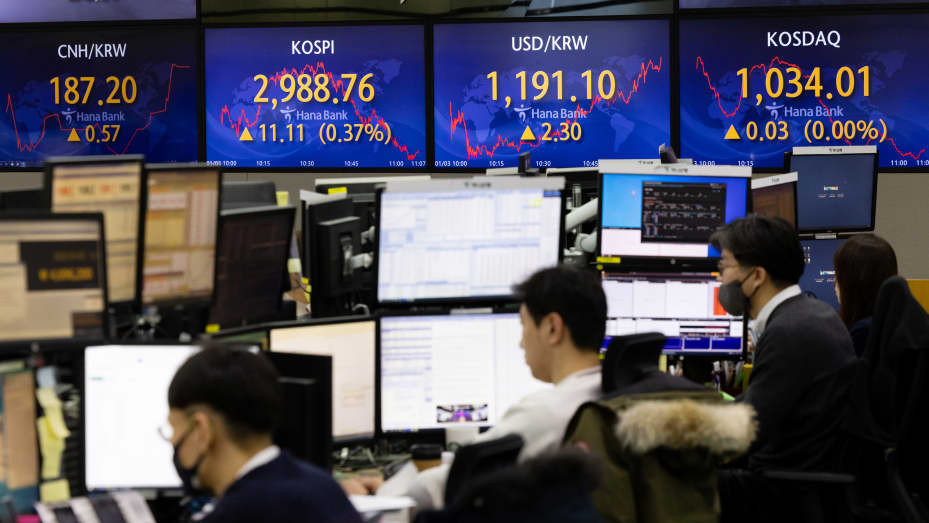
Asian stocks continue to show declines of up to 2%. China's Shenzhen Composite and Shanghai Composite fell the least, losing 0.3% and 0.44%, respectively. Australia's S&P/ASX 200 and Japan's Nikkei 225 were down 0.94% each. Hong Kong's Hang Seng Index was down slightly less (0.85%). The Korean KOSPI lost the most (1.93%).
Investors are more cautious towards the end of the year because the growth of consumer prices is still high across the world, there is geopolitical tension and also there is a fear of potential economic downturn in the new year.
The main reason for the negative sentiment is still the situation regarding the spread of coronavirus in China. For the past two months, the country has seen a rise in Covid cases. At the same time, Chinese authorities want to ease quarantine measures for tourists entering the country from the beginning of next year.
At the same time, the opposite situation is observed in other countries - tougher measures for tourists arriving from China. For example, U.S. authorities have introduced mandatory testing for coronavirus for those arriving from China before departure. Italy also intends to test tourists arriving in the country from China.
The main concern is the emergence of new, more resistant strains of coronavirus as a result of emerging outbreaks. This, in turn, may have a negative impact on the epidemiological situation in other countries.
The decline in prices for JD.com, Inc. dropped 5.4%, Xiaomi, Corp. fell 3.2%, Lenovo Group, Ltd. dropped 3.1% and Longfor Group Holdings, Ltd. and Netease, Inc. lost 2.9% each among the biggest Chinese companies.
Chinese carrier Cathay Pacific Airways, Ltd. fell 1.4% on news that it plans to lower the number of flights to Japan by 20% to comply with Japanese authorities' tighter Covid-19 requirements for travelers from China.
Among Japanese companies, those that traded lower were Isetan Mitsukoshi Holdings, which fell 4.4%, Fast Retailing, which dropped 3% and Sapporo Holdings, which dropped 2.8%.
Kusuri No Aoki Holdings shares fell 12.1% after the Japanese drugstore operator's second-quarter net profit dropped due to higher costs and a difficult economic situation.
Meanwhile, South Korea has recorded three straight months of declining retail sales (down 1.8% last month versus October).
There was also a 3.7% year-on-year decline in industrial production in November compared to a 1.2% decline in October. This was the largest decline in nearly a year and a half. In the manufacturing sector, the index declined even more - by 3.8%.
The largest Korean companies also traded lower: shares of Samsung Electronics fell in price by 2.3%, and Hyundai Motor dropped by 2%.
Australia's S&P/ASX 200 fell as shares of the country's largest companies were also trading lower. Woodside Energy Group fell by 4.5%, BHP Group dropped by 1.6% and Rio Tinto - by 0.6%.





















